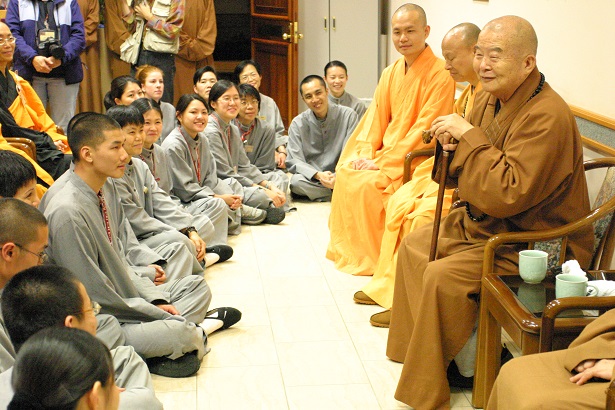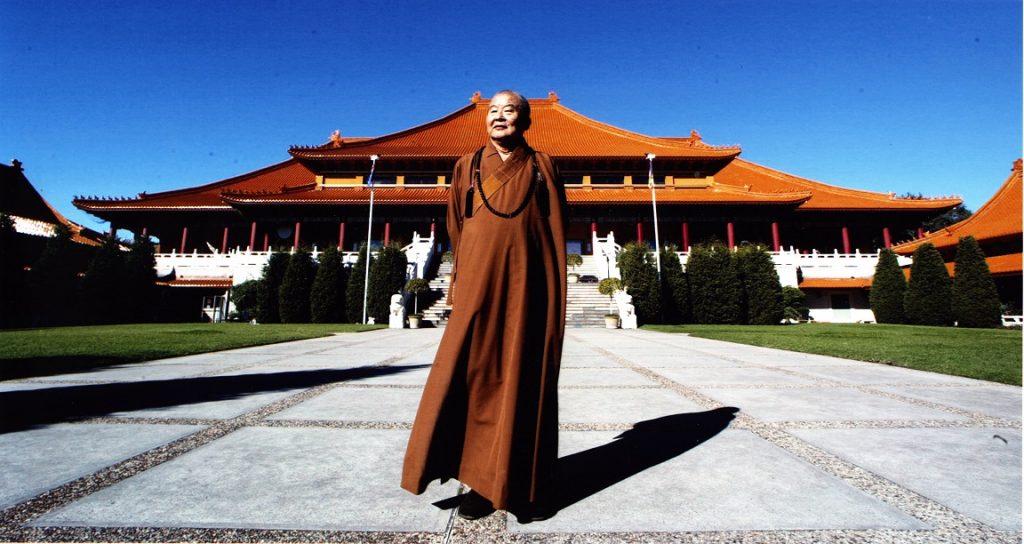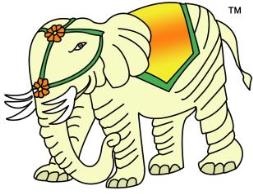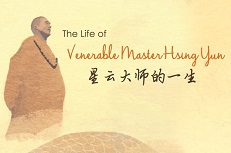Person of Significance- Master Hsing Yun
Hsing Yun founded the international Buddhist monastic order, Fo Guang Shan, headquartered in Taiwan, as well as the Buddha’s Light International Association, headquartered in Los Angeles, USA.

This Chinese Buddhist monk has also tonsured, or ordained, about 1,500 disciples who are now serving in over 200 temples and non-profit enterprises worldwide.
Life and Ideas
Hsing Yun was born into a rural family in Jiangdu, Jiangsu Province, China in 1927. At the age of twelve, he was tonsured by Master Zhikai from the Linji school of Chinese Chan lineage. In 1949, he joined a medical relief mission and left China for Taiwan, where he founded Fo Guang Shan in 1967.
Having been a monastic for over seventy years, Hsing Yun has dedicated his life to propagating “Humanistic Buddhism” which he defines as teachings of the Buddha relevant to the needs of people; in particular, teachings that are pure, virtuous and beautiful, for the purpose of promoting the happiness of humanity. His life’s mission is based on his understanding of Buddhism as being founded on the equality of living beings, and their right to happiness.
Contribution
Hsing Yun is a teacher and practitioner of the Humanistic Buddhism he advocates. To enable his worldwide devotees to meet their spiritual needs through the Buddha’s teachings, he set for himself, and his disciples, the mission to propagate the Dharma through culture, to foster talents through education, to benefit society through charity and to purify people’s minds through spiritual cultivation.
To accomplish this mission, Hsing Yung built over two hundred temples around the world. He also started art galleries, libraries, publishing companies, bookstores, Chinese schools and kindergartens. Hsing Yun is a firm believer in investing in education, founding five tertiary institutions in Taiwan, the United States, Australia and the Philippines, as well as Buddhist seminaries, middle and elementary schools.
As a practitioner of Humanistic Buddhism he has also established children’s homes, senior citizens’ homes, mobile clinics and hospitals. He has provided, and continues to provide, emergency relief aid to support the poor and needy around the world.

As a teacher, Hsing Yun has been invited to deliver hundreds of lectures around the world. He also published his speeches and thoughts in books and journal articles, totalling more than 20 million words. An increasing number of his works are translated into over twenty languages and circulated around the world. His contributions to academia include journals, Fo Guang Buddhist Canon and Fo Guang Buddhist Dictionary. To help the general public access Buddhist sutras written in classical Chinese, Hsing Yun compiled a 132-volume Selected Chinese Buddhist Texts in Modern Language, started the Beautiful Life TV station and founded the Merit Times Daily News.
Impact
Hsing Yun’s work and impact in culture, education, and charity have raised the status of Buddhism worldwide, encouraging awareness. In recognition of his contribution, he has received 15 honorary doctorates, as well as honorary citizenships of Wollongong and Brisbane, Austin (Texas) and Alhambra (California) for his impact on these cities. In 1998, Houston (Texas) recognized the 20th of June as Venerable Master Hsing Yun Day. He and his disciples have delivered Buddhist talks on national radio, television programs and international conferences.
Hsing Yun is a strong advocate of equal opportunity. In February 1998, he presided over an International Triple Platform Full Ordination Ceremony at Bodhgaya, helping to revive the bhikkuņī(monastic nun) precepts of Southern and Tibetan Buddhism. Today, several bhikkuņīs in Sri Lanka, Thailand and other countries where Theravada and Vajrayana Buddhism are the mainstay can trace their ordination back to this special occasion. Hsing Yun devotes his effort towards establishing systems and regulations to ensure equality between monastics and laity, as well as between male and female Sangha members. He promotes lay dharma lecturers and lay devotees or volunteers to assume important duties. At the same time, capable monastics may assume leadership responsibilities.
By empowering the laity he has facilitated Buddhism’s modernisation , and brought Buddhism closer to society. Hsing Yun made the Buddhist temple more appealing by promoting the Dharma through songs and music, and injecting culture into the monastery by building art galleries, bookstores and tea houses within the temple complex.
Summary
Hsing Yun, with origins tracing from a humble family in China, went on to establish worldwide Buddhist organisations. As an active promoter of equal opportunity, his efforts to raise the profile of monastics, especially nuns, and allow Buddhists to contribute to meaningful and enterprising work in society have been recognised by many governments and universities around the world. His life’s effort can be seen as a manifestation of a fundamental Buddhist belief that all living beings are intrinsically equal.
Juewei Shi, Stacey Weng
Humanistic Buddhism Centre, Nan Tien Institute
18 February 2015

